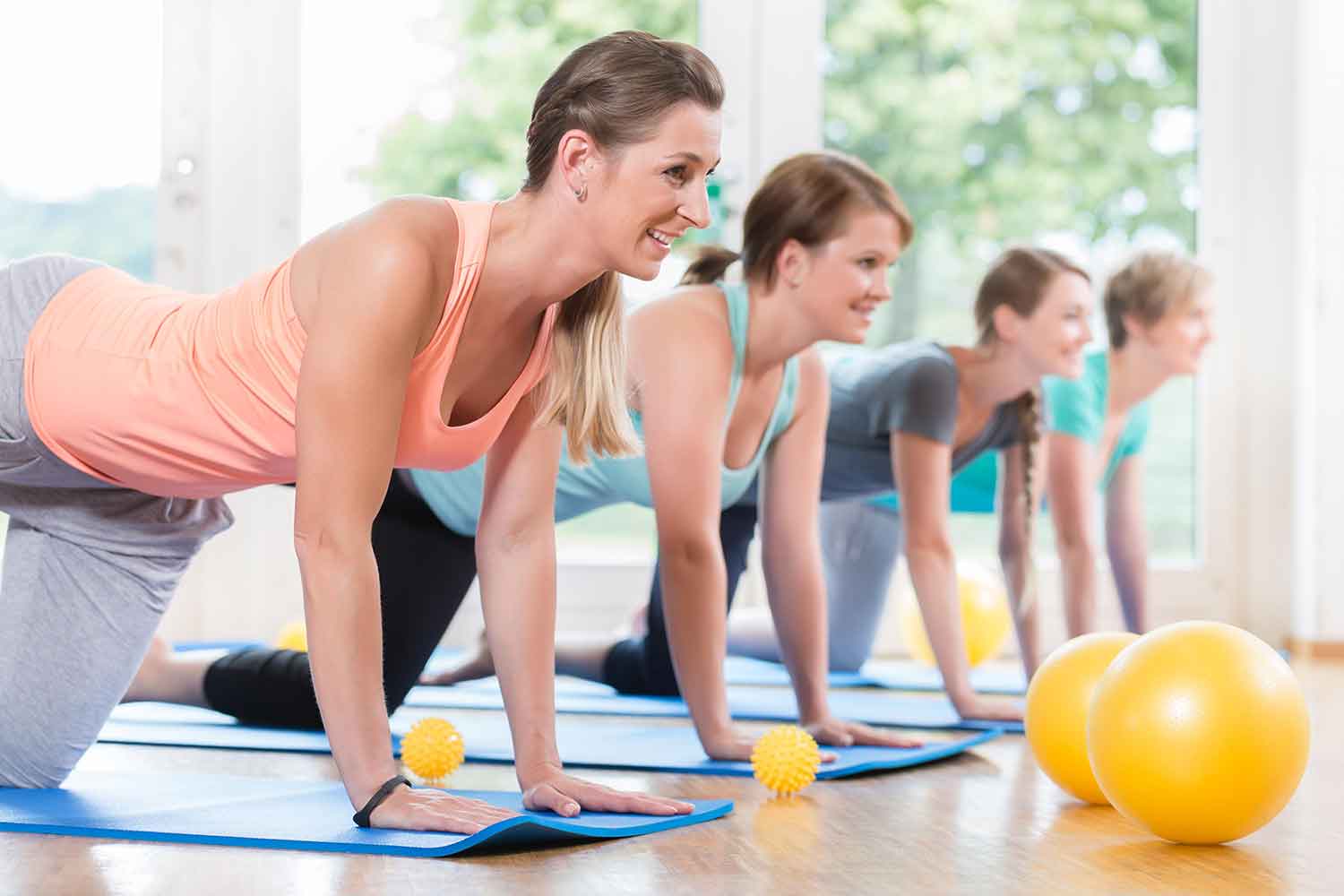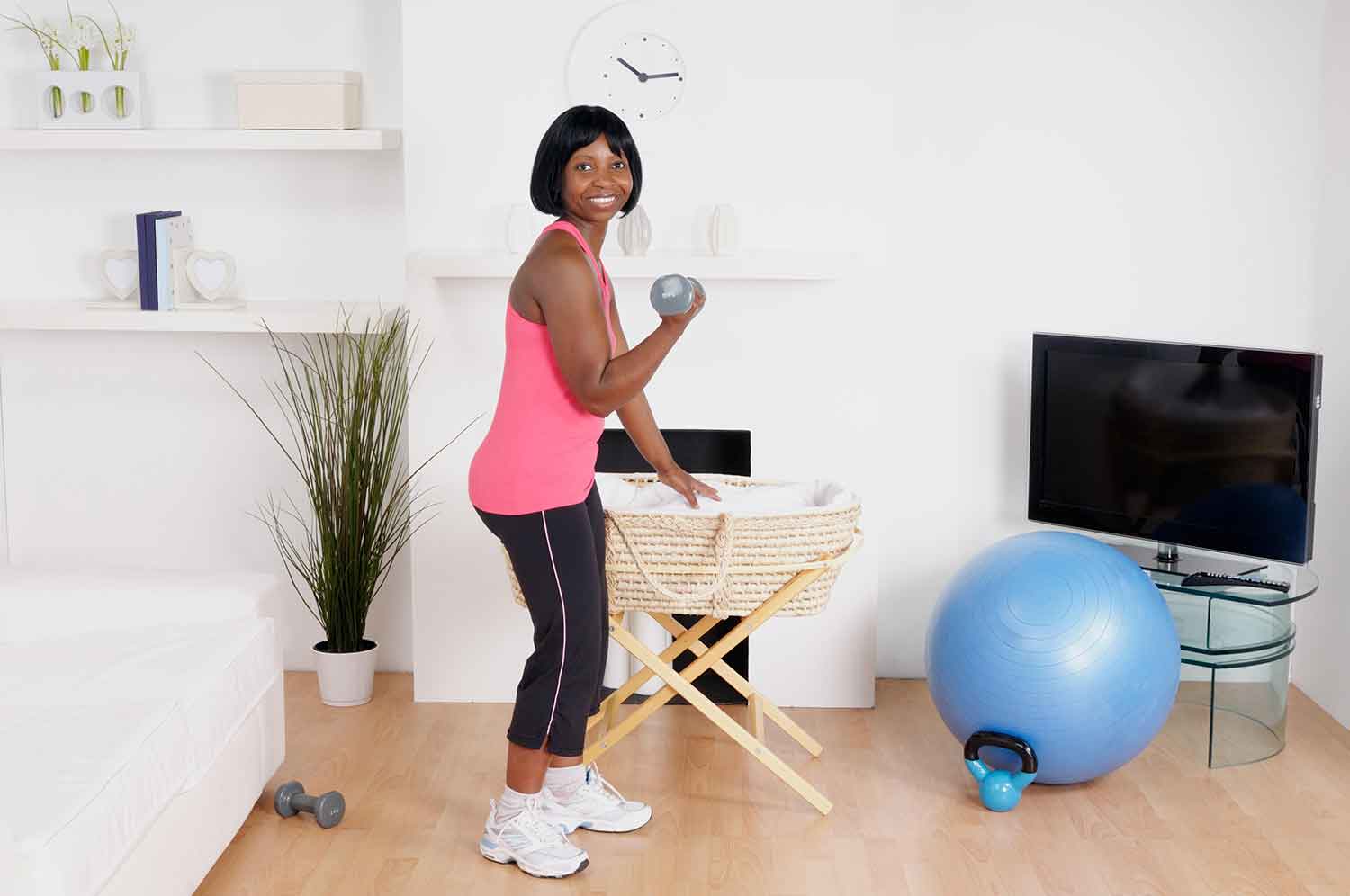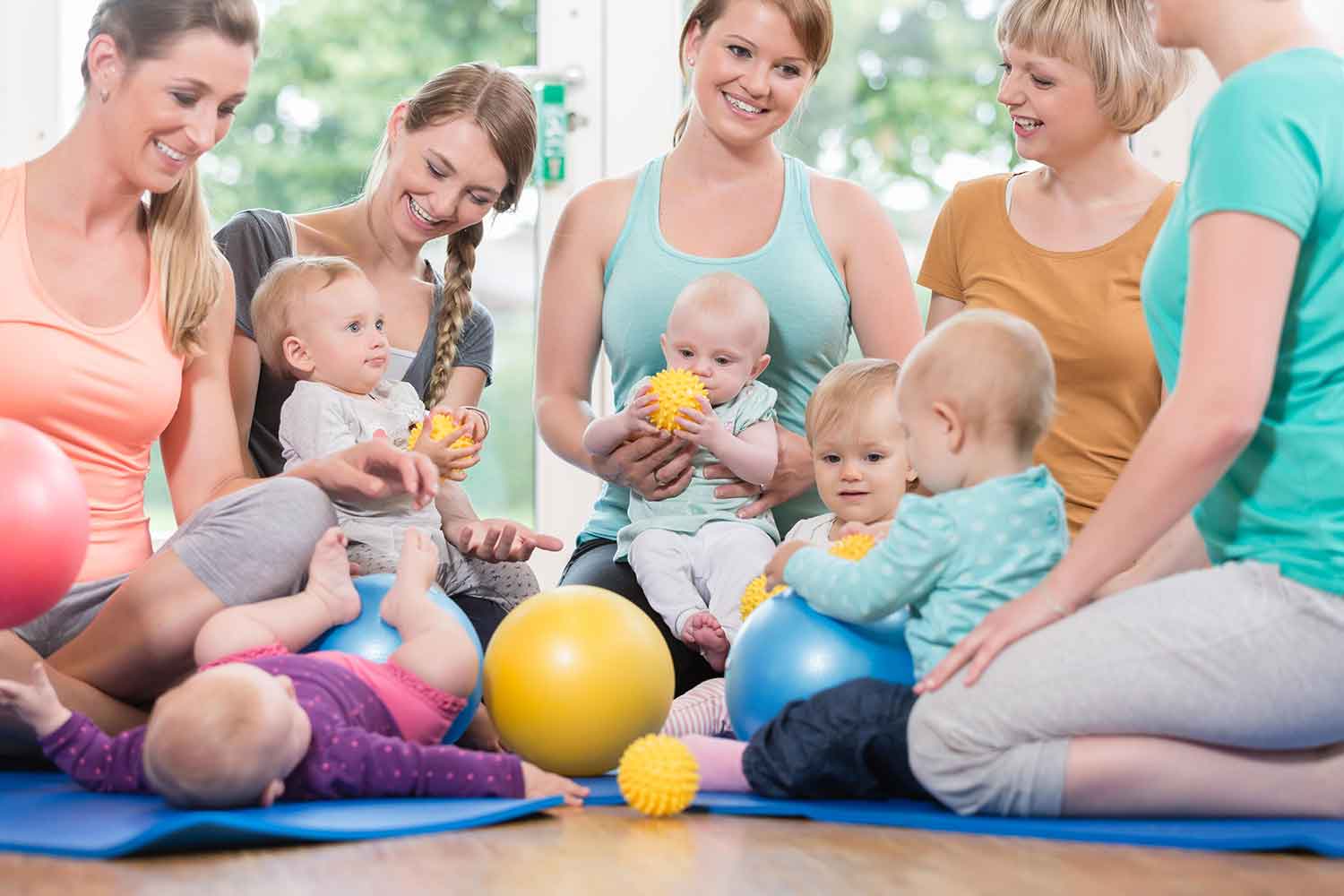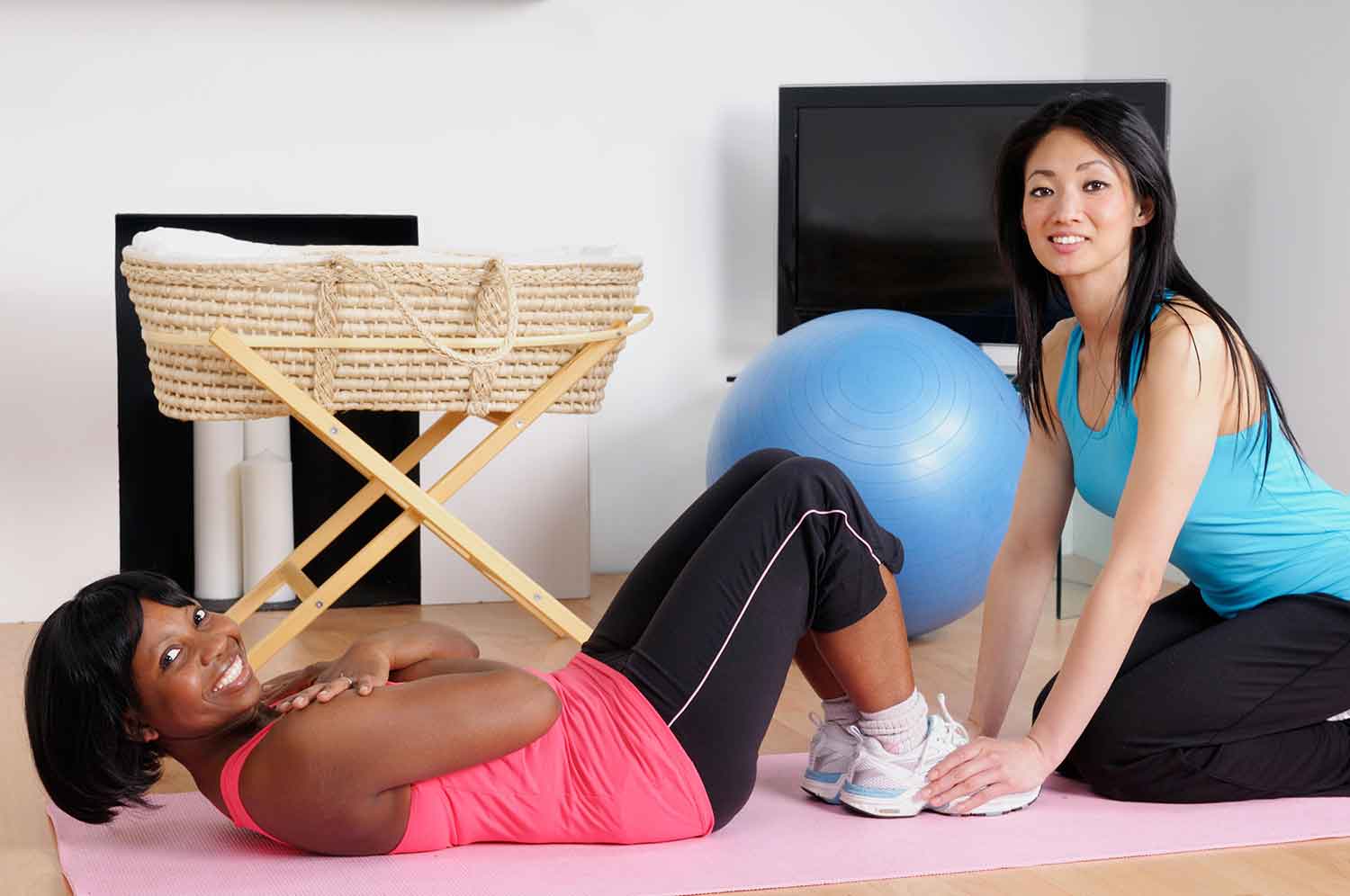Building a healthy and active lifestyle through exercise is perfect for women to return to their normal lifestyle after pregnancy. Postnatal Personal Training is an effective and safe workout regimen customised for postpartum women. Postnatal exercises help you get body shape back, tone up abdominal muscles and prevent low back pain.
When to start postnatal personal training
Gentle exercise such as walking can begin as soon as comfortable after birth. Begin when you feel up to it. Some women will want to start to exercise early. Talk with your doctor about a perfect time for you to restart an exercise routine.
Six weeks after delivery, most of the changes during pregnancy will have returned to normal. If you had a caesarean delivery, complications, or difficult labour, it might take a little while to feel ready to begin exercising. If you did not exercise during pregnancy, begin with easy exercises, and slowly build up to harder ones.
Keep in mind that your lower back and core abdominal muscles are weaker than they used to be. Your joints and ligaments are also more supple and flexible, so it is easier to injure yourself by twisting or stretching too much. Avoid any strenuous exercises or sports that require fast direction changes.
Having a baby will memorably change your life and your body – there are countless reasons why exercise is crucial after giving birth to your baby. There are, of course, more clear benefits; however, there are so many other reasons why postnatal exercise is so important.
What are the benefits of postnatal personal training?
- Physical Appearance
All women undergo a huge physical transformation of their bodies during pregnancy and childbirth. Soft-tissue structures, Internal organs, and skin are all forced to stretch to accommodate the baby throughout pregnancy.
After birth, it takes time for the body to recover and everything to minimise its original size. How quickly this process takes place can depend on many things, including fitness level before pregnancy, postnatal exercise, diet, and genetics – every woman is unique. Individuals may take diverse amounts of time to regain their former shape after birth. However, there is no doubt the significance of a postnatal workout.
- Psychological Well-Being
During pregnancy, the body undergoes a hormonal transformation. After birth, hormone levels begin to return to their normal level, and for some women, this can lead to feelings of anxiety, mood swings, irritability, and tearfulness. Some women develop postnatal depression, which is characterised by continuous irritability, negative thoughts, low mood, poor sleep, low energy, and in some cases, difficulties caring for the baby. Exercise is mood-enhancing, helping to boost a natural hormonal balance.
Postnatal exercise is useful to all women; it not only helps to recover physical health but can also assist to improve low mood, sleep quality, relieve stress, and help prevent postnatal depression. Being fit and healthy also improves stamina levels, assisting the mother cope with motherhood’s demands – making looking after a newborn much easier.
Joining in with frequent exercise is also a social activity; meeting with other women going through a similar encounter can provide additional support and boost morale making the mother feel more positive about the baby’s birth.
It can also:
- Help replace muscle strength and firm up your body
- Make you less fatigue because it raises your energy level and boosts your sense of wellbeing
- Promote weight loss
- Improve your cardiovascular fitness.
- Control your abdominal muscles.
- Enhance your mood, relieve stress, and help prevent postpartum depression.
Types of Post Natal Exercise
Immediately after birth, it is vital to listen to your body and not do too much too early– the first steps toward regaining your fitness may include going out for walks, doing gentle stretches, and pelvic floor exercises.
A lot of women resume more vigorous physical activities such as running, dance classes, etc., following their six-week check-up for natural births and 10 to 12 weeks post-caesarean section.
After a caesarean, recovery time may be longer and greater precaution will need to be taken when exercising. It is crucial to ensure that the wound has sufficient time to heal, and that any workout will not set back recovery time. Some women may also undergo greater fatigue after a caesarean section.
Pelvic Floor Exercises
Strengthening the pelvic floor muscles will aid prevent accidental urine leaks, strengthen, and tone the muscles around the bladder, vagina, and back passage. This exercise can be done anywhere – sitting, standing, or walking. It can also help treat prolapse and improve intercourse and assist the perineum and the vagina heal more quickly and improve circulation to the area, which can help reduce any swelling and bruising.
Walking
A quick daily walk around your local park is a great way to get back into doing exercise. A lot of gyms and other facilities provide postnatal fitness groups for mums, babies, and buggies. This exercise can even include your baby in their stroller or cart as part of the workout.
Swimming
Swimming is a highly effective, low-impact, postnatal exercise that works the heart and lungs without putting too much pressure on the joints while tightening and toning the muscles.
It is important to wait for the post-caesarean section until the wound has completely healed and scarred over before any water-related activities.
Yoga
Incredibly helpful– It encourages relaxation and de-stresses while strengthening core muscles and helping to relieve and prevent aches and pains.
Pilates
Pilates is another highly effective exercise that strengthens the muscles weakened during pregnancy.
Note: Before participating in any exercise class not categorically designed for postnatal women, it is vital to inform the class coach that you have recently had a baby to ensure that exercises are appropriate.
Postnatal Exercise Classes
This class is designed to help new mothers recover their muscle tone and improve cardiovascular fitness by focusing on specific pelvic floor strengthening exercises, flexibility, cardiovascular fitness, and education regarding befitting training for the home. Postnatal classes also offer a great way not only to return to work out safely and effectively as well as meet other new mothers and their babies.
Contact us today to see how Jerry-Ann Fitness can help you with your fitness journey today




